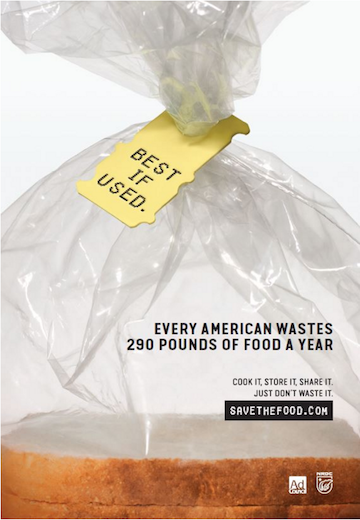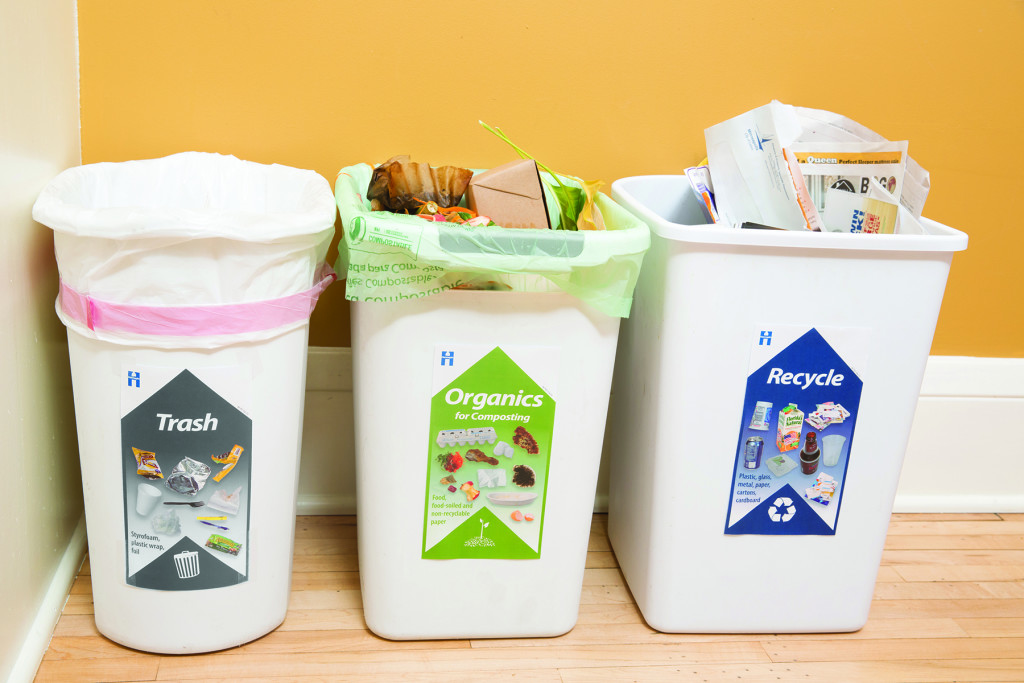Written by Jabari Brown, J.D. Candidate 2017 at the University of Oregon School of Law, and Summer 2016 intern in the Harvard Law School Food Law and Policy Clinic
Read the first part of “Reducing Food Waste Through Consumer Education”
 Consumer education that creates awareness around food waste consequences combined with information on recognizing and implementing the steps we can take at home to store, preserve, use, and reuse the food we buy, cook, and eat on a daily basis is essential in food waste reduction. The NRDC agrees that there is a human, personal element to changing behavior and attitudes around food waste. For instance, the NRDC recently collaborated with the Ad Council to launch a campaign aimed at reducing food waste. It may seem odd to think of a commercial as a key component of a larger legal effort, but public awareness campaigns have been remarkably successful in the past at changing human attitudes and behavior. According to the Ad Council, 68% of Americans report they have tried to prevent someone from driving after drinking since the Ad Council’s “friends don’t let friends drive drunk” campaign started in 1983. The organization has had similar results with other campaigns, raising over $4.3 billion for the United Negro College Fund supporting their minority education campaign, facilitating 34,000 calls made to the Family Violence Prevention hotline in the first year of their domestic violence reduction campaign, and reducing the annual acreage damaged by wildfire by almost 40% since 1944 with the “Smokey the Bear” wildfire prevention campaign.
Consumer education that creates awareness around food waste consequences combined with information on recognizing and implementing the steps we can take at home to store, preserve, use, and reuse the food we buy, cook, and eat on a daily basis is essential in food waste reduction. The NRDC agrees that there is a human, personal element to changing behavior and attitudes around food waste. For instance, the NRDC recently collaborated with the Ad Council to launch a campaign aimed at reducing food waste. It may seem odd to think of a commercial as a key component of a larger legal effort, but public awareness campaigns have been remarkably successful in the past at changing human attitudes and behavior. According to the Ad Council, 68% of Americans report they have tried to prevent someone from driving after drinking since the Ad Council’s “friends don’t let friends drive drunk” campaign started in 1983. The organization has had similar results with other campaigns, raising over $4.3 billion for the United Negro College Fund supporting their minority education campaign, facilitating 34,000 calls made to the Family Violence Prevention hotline in the first year of their domestic violence reduction campaign, and reducing the annual acreage damaged by wildfire by almost 40% since 1944 with the “Smokey the Bear” wildfire prevention campaign.
The campaign to reduce food waste has to be dynamic, flashy, and ubiquitous. Expiration date labels need to be clear, with language as direct as possible. But in the end, a standardized date labeling is not enough, nor is consumer education. Only the successful combination of the two will bring us closer to a zero-waste system. We collectively need to shift our thinking. If we all were aware of how much money we throw out each meal and how much our leftovers contribute to climate change, we may choose to save our leftover chicken bones for stock or box up the remainder of our restaurant dinner for a snack later. We need to implement innovative solutions that integrate the new tools of intelligent technology with the old wisdom of grandma’s banana bread. The solution starts with a national dialogue and ends when our national food waste percentage is zero.

Image from www.minneapolismn.gov/solid-waste
How much food do you waste on a daily basis?
Interested in more? See the short film “EXPIRED Food Waste in America,” a Harvard Food Law and Policy Clinic collaborative effort to promote awareness of how date labels contribute to food waste.


Health Law & Policy, Commentary
Braidwood Management v. Becerra: Updated FAQs for Health Advocates and Providers
July 22, 2024